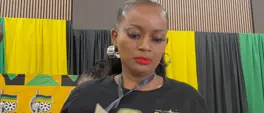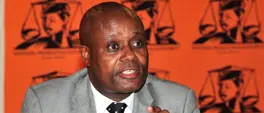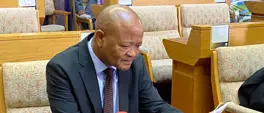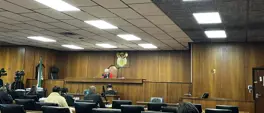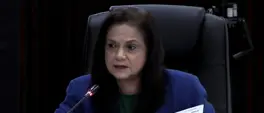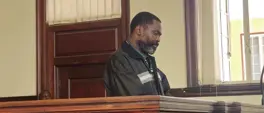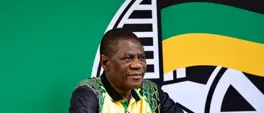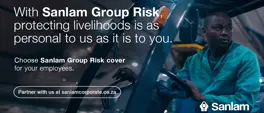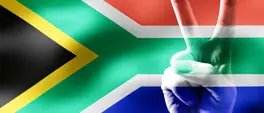JAMIL F. KHAN | Johannesburg roads reflect a society in a hurry and in crisis
Jamil F. Khan
8 July 2025 | 10:55Owning and driving a car is not simply about our personal consumption goals, but also a huge responsibility, and we must start taking it more seriously, writes Jamil F. Khan.
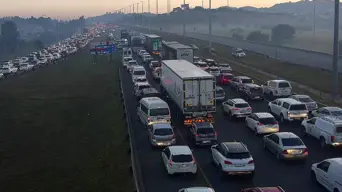
Traffic jam on N1 at Diepkloof. Picture: Supplied/@itrafficgp
Johannesburg has a notoriously fast-paced driving culture, mirroring an equally fast-paced social culture. We are always in a hurry to get somewhere and do something, which is one of many things we might have to do on that day.
Between locations, our time is spent navigating the sometimes chaotic roads of this bustling city. In between faulty robots, potholes, and indefinitely incomplete roadworks, drivers are focused on getting to their destinations as quickly as possible as we mow down the items on our to-do lists.
At the heart of Johannesburg’s hustle culture, is a mindset of individualism bolstered by values of middle-class aspiration and capitalist consumption – placing the needs of the consumer at the top of the priority list. This culture puts courtesy and cooperation on the back burner. When viewed as a site of social interaction, our roads paint an interesting picture of our society.
It is well-known that our public transportation systems have been mismanaged and neglected to the extent that acquiring a private vehicle for individual use, no matter how modest, has become a status symbol signalling upward mobility.
Many people aspire to owning a vehicle for its convenience and safety – commodities that are desperately pursued in a country that makes comfortable existence an uphill battle for its citizens.
The desperation for convenience, safety and upward mobility, however, obscures a more important component of vehicle ownership and use: collective responsibility for road users’ safety. Road users include not only motorists, but also pedestrians who often suffer the brunt of an extremely reckless vehicle-centric road use culture.
Weekly, on a very measured commute which never exceeds 75 km/h, I observe the most reckless, daring and thoughtless driving behaviour that puts multiple lives at risk. This excludes the behaviours of taxi drivers who will have to be dealt with on their own.
It is evident that for many, once they have acquired a driver’s license or a vehicle (whichever comes first) they are above obligation and owe their care and attention to nothing but their own interests.
Taxi drivers have become so well-known for reckless and illegal driving that we all anticipate their actions to avoid frustration, making them less of a risk than those we trust to do the right thing. We have a problem with the breakdown of courtesy on our roads.
In their hurry to get everywhere, drivers take poorly calculated gaps, rush to beat robots and more bizarrely, refuse to show their fellow drivers any grace, as if the road is not a domain that we share.
This lack of courtesy is even more pronounced towards pedestrians. In our racialised, classed social landscape, with inadequate public transportation infrastructure, pedestrians are mostly poor, and poor people in South Africa are mostly Black.
This attaches a racial optic to pedestrians, and prevailing attitudes towards poor and Black people find yet another outlet on the roads. The patience people have for a runner with expensive sportswear who might need a few extra seconds to cross the road after the robot changed, is painfully absent when a labourer in overalls trails behind a group of pedestrians darting across nervously to catch the taxi on the other side of the road.
We are products of our collective history and the disdain for those deemed lesser in society always simmers just beneath the surface. Being behind the safety of a windscreen and locked doors offers many a cover for these subtle expressions of disdain, which influence the choices we make.
In a different way, relations between drivers mirror a dynamic in which a sense of competition and rivalry encourages drivers to use their vehicles as tools of intimidation in pursuit of being “King of the Road”.
Through this competition, robots and stop signs become annoyances, interrupting their fantasies of road ownership. When signing up to drive a motor vehicle, we do not only sign up for the convenience of it, but we also take the lives of others into our hands. Every choice we make on the road can change the lives of multiple people in the blink of an eye.
Too few people fully compute what it means to control a hunk of metal that weighs over 1000 kgs, moving at 100 km/h. Without a highly developed and practiced spatial awareness, perfect eyesight and reflexes, and the ability to calculate distance, speed and time through full engagement of all our senses, we are in no position to be taking risks on the road.
Add to this the need to anticipate the actions of others on the road, and driving becomes a highly mathematical, and social sensory experience. Our collective safety relies on a dying practice of consideration and courtesy which, we need to revisit.
For those who might be unpersuaded by this argument, I suggest an exploration of the history that has led to the vehicle-centric culture in most countries, driven by the need to keep up the demand for fuel and rubber.
This culture has made the ownership of cars the status symbol it is, with the unfortunate consequence of attaching differential social value to those locked out of ownership, further stratified by various price points across vehicle options. The road is not in the least an apolitical space and while we chase our dreams of convenience, we must pay attention to the power dynamics that govern the space.
Most of all, we have to slow down. Time and time again, someone rides my bumper before swerving out and zooming by in utter annoyance at me for adhering to the speed limit, only for me to meet them at the next red light, and the next one.
For those paying attention, it is clear that unless one is traveling at breakneck speeds, on an open highway, you will save no more than 2 minutes by speeding. Owning and driving a car is not simply about our personal consumption goals, but also a huge responsibility, and we must start taking it more seriously.
Our governing systems have not always proved efficient, but the rules of the road exist for many good reasons. “Arrive Alive” is not only a slogan, it is a plea.
Jamil F. Khan is an author, doctoral critical diversity scholar, and research fellow at the Johannesburg Institute for Advanced Study.
Get the whole picture 💡
Take a look at the topic timeline for all related articles.




